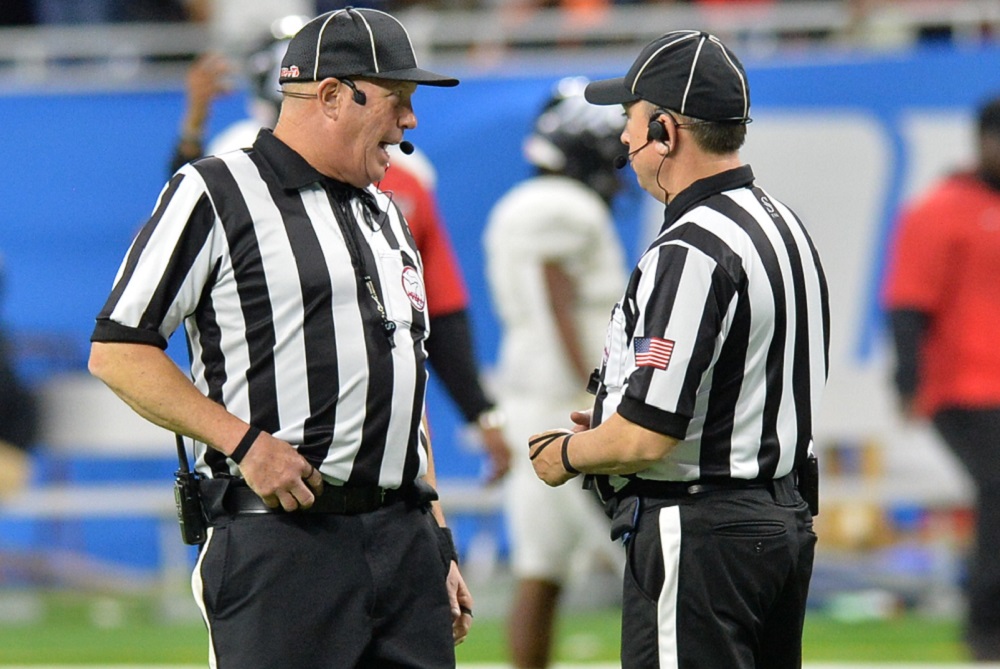
Be the Referee: Swim Finishing Touch
September 19, 2019
This week, MHSAA officials coordinator Sam Davis explains a new rule in swimming that allows for more flexibility when determining when a competitor has finished a race.
Be The Referee is a series of short messages designed to help educate people on the rules of different sports, to help them better understand the art of officiating, and to recruit officials.
Below is this week's segment - Swimming Finishing Touch - Listen
There’s a swimmer-friendly rules change being made in that sport this season. The definition of a legal finish has been changed to allow a competitor to touch any part of the finish end of the lane.
Previously, a swimmer had to contact the touch pad for a legal finish. The touch rule has also been changed to apply during relay races – where prior to this season only the final swimmer had to touch the finish end of the pool.
While the changes may provide some flexibility for swimmers, it does put additional responsibility on lane judges and back-up hand timers to be ready for those occurrences when a swimmer does not contact the touch pad.
Sept. 12: Curbing Gamesmanship By Substitution - Listen
Sept. 5: Football Safety Rules Changes - Listen
Aug. 29: 40-Second Play Clock - Listen

Be the Referee: Intentional Grounding Change
By
Sam Davis
MHSAA Director of Officials
August 23, 2022
Be The Referee is a series of short messages designed to help educate people on the rules of different sports, to help them better understand the art of officiating, and to recruit officials.
Below is this week's segment – Intentional Grounding Change - Listen
New this year in football is a change to intentional grounding.
What’s staying the same? A quarterback in the free block zone – who throws a pass to an area with no receiver nearby – will continue to be flagged for intentional grounding. That’s a five-yard penalty and loss of down.
So what’s different? Now … a quarterback outside of the free blocking zone can legally throw the ball away as long as the pass lands past the original line of scrimmage. This used to be flagged for grounding, but is now legal.
In fact, this rule doesn’t just pertain to the quarterback. Any passer, outside of the free blocking zone, can throw the ball away as long as it lands past the line of scrimmage.

